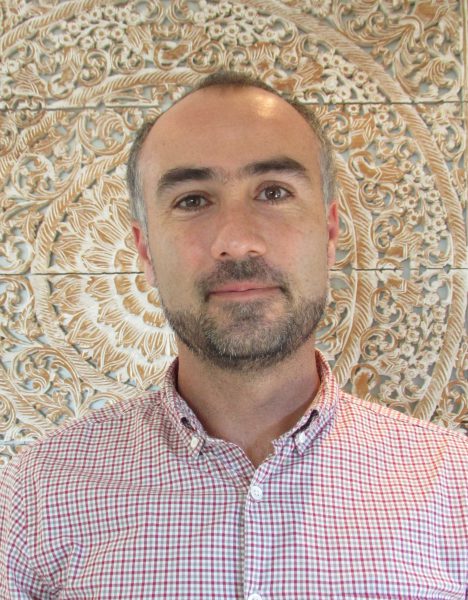By Ramin Pejan and contributors

In his guest column last week, Chris Reed, a retired chemistry professor penned a passionate endorsement of Roundup. Dr. Reed made several misleading and false statements. We address his most problematic statements below.
Reed: “In a recent Indy guest column, Ramin Pejan compared Roundup to DDT. This is pure fearmongering.”
Our response: This is false. Mr. Pejan’s exact words in the Indy were: “Monsanto, who has produced and sold Agent Orange and DDT, has, for years, urged that Roundup is perfectly safe (just like it did with DDT).” He was questioning the claims that Monsanto has made about Roundup based on false representations it had made about DDT.
Reed: “[Roundup] typically decomposes in soil within days. USDA Forest Service’s herbicide informational profile on glyphosate is a good source…”
Our response: Dr. Reed refers readers to an outdated 25-year-old publication. Since then, numerous peer-reviewed studies have found that Roundup can take anywhere between days to over a year to degrade in soil.
Reed: “The success of billion-dollar lawsuits against Monsanto, now Bayer, is often taken as proof that Roundup is a deadly toxin. However, class action lawyers are a relentless bunch, and juries often don’t have a clue about science. Sure, if a barrel of concentrated Roundup spills on your head, expect problems.”
Our response: To win a civil case against Bayer, plaintiffs would need to convince up to twelve jurors that their cancer was more likely than not caused by Roundup.
Monsanto and Bayer have spent millions of dollars hiring the best lawyers yet have lost billions in multiple cases. Many cases are filed by residential users who have used it according to instructions.
Dr. Reed should meet with families who have lost loved ones and explain that they are “just playing the system,” as he alleges.
Reed: “People like to quote a single scientific study that they have found to support Roundup toxicity. This is classic confirmation bias….”
Our response: This is false. We have accumulated a science table with over 40 peer-reviewed studies showing Roundup is dangerous to health and the environment, and there are many more. We also refer readers to EPA’s 2020 determination finding that 1,676 endangered species are likely to be harmed or killed by glyphosate and that glyphosate adversely modifies critical habitat for 759 endangered species.
Reed: “The World Health Organization (WHO) is notorious for listing chemicals as potential carcinogens after a single suggestive scientific study is published.”
Our response: This is false. The WHO, in finding glyphosate is a probable carcinogen, relied on 118 peer-reviewed studies, 70 percent of which found a positive link to genotoxicity (cancer-causing). Many peer-reviewed papers have been published generally supporting and/or defending the determination.
Reed: “Being against Roundup is like being on a crusade. You feel a solidarity with like-minded warriors. … But like the crusaders of old, who made war on those of another religion, history now views crusader glory in a rather different light.”
Our response: Comparing the thousands of residents in Laguna Beach who oppose using Roundup in public areas to medieval crusaders is demeaning and insulting.
Reed: “The ESC boasts of its unanimous decision to ban Roundup. This looks to me more like a classic case of groupthink.”
Our response: Once again, Dr. Reed is confused. The ESC did NOT vote to ban Roundup. It voted for the City Council to consider options to minimize its use, including seeking a Coastal Commission amendment to endorse an Integrated Pest Management policy like Malibu and Irvine, requiring people to use non-toxic alternatives before using synthetic herbicides. The ESC also noted that nothing prevents the city itself from prohibiting city agencies from using Roundup, as Malibu has done.
Reed: “Laguna’s city parks are persistently weedy with invasive plants and not nearly as beautiful as they could be. Roundup would help a lot.”
Our response: We hope the city does not heed Dr. Reed’s advice.
Reed: “I do not believe Roundup has significant toxicity when used in diluted form. It may be Monsanto’s greatest invention.”
Our response: We rely on peer-reviewed science to understand Roundup’s risks (unlike the EPA), which raises serious questions about its safety. If there are alternatives, which may cost more, the city should proceed with caution and prevent unnecessary risk exposure to its residents.
This is where we agree with Dr. Reed. He concludes by suggesting to the City Council “to find other solutions that allay the fears of those who think Roundup is a deadly toxin, perhaps by using hand crews to clear fuel modification zones where people go frequently.”
Ramin is a resident of Laguna Beach and a South Laguna Civic Association board member. The views expressed in this column are made in his personal capacity as a concerned resident, along with Jinger Wallace, Charlotte Masarik, Cindy Love, Ted Reckas, Gayle Waite, and Judie Mancuso, vice chair of the Environmental Sustainability Committee. Over 375 South Laguna residents have signed a petition requesting the city to stop using Roundup, and over 1200 people have signed a similar online petition.





Fact :
Glyphosate has been deemed not a carcinogen by the Us EPA, Canadian EPA Eu safety agencies and more multiple times. The EU agency especially is not in Bayers pocket ( Monsanto is now Bayer).
Fact:
The courts have ruled that Monsanto /bayer can’t label glyphosate as a carcinogen because that would be deceiving the public.
Fact: laypersons on juries don’t decide scientific facts .
As an aside the old company Monsanto is not the Monsanto that was recently taken over by Bayer.
Old Monsanto sold off its chemical division as solutia but since it went bust the owner of the rest of Monsanto [pharmacia) in 2000 had to deal with legal issues related to the chemicals.
Pharmacia spun off its ag division in 2000 and called it Monsanto . Monsanto did make glyphosate but now greater than 50% is made by Chinese companies and glyphosate in the US is sold by many companies.
The IARC who said that glyphosate was probably a carcinogen put it into the same group as eating picked fish, working nights, eating bacon.
Several on the IARC panel now work for lawyers making $billions off the lawsuits. ( conflict of interest?)
The IARC did not consider 20years of data on farmers that shows not correlation to the specific cancer that the IARC was worried about.
The IARC is part of the WHO but 3 others parts of WHO say glyphosate is not likely a carcinogen.
Despite all this, a local authority should probably avoid using glyphosate just mexause if all the fake facts about it. However the alternatives are not safer but apparently people don’t care.